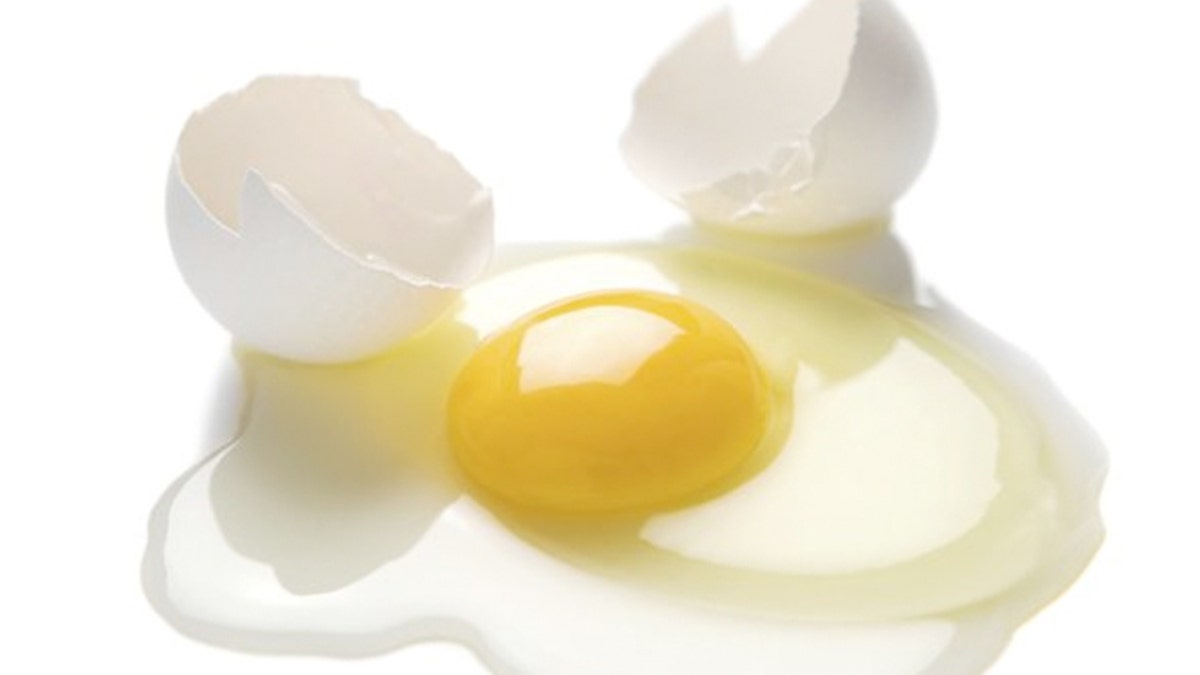
There’s new information that may make you think twice before dumping those bright yellow orbs. (iStock)
While the winter season brings lots of festivities and fun, it also tends to be the time we see an uptick in colds. From spending more time indoors to greater exposure to unfamiliar germs through travel, the winter months are a critical time to up your defenses against infection.
Hand washing, flu and pneumonia shots and adequate rest are key to protecting yourself from diseases—and why not up your nutrition defenses as well?
Read on for some foods to start eating today to help keep your immune system in top shape.
Fatty Fish: Omega-3 fatty acids play an important role in the immune system, and one way to load up on this hard-to-find nutrient is through fatty fish like salmon, tuna, sardines, and anchovies. In addition to omega-3 fatty acids, fish contains protein, vitamin B-6, and iron -- important nutrients to keep you healthy. To help reach the recommended 2 to 3 servings of fish a week for good health, stock up on cans of fatty fish – just one serving of Bumble Bee Omega-3 albacore tuna contains 500 mg of omega-3 fatty acids.
Fortified Milks: Usually the last thing you want when you have a cold is something milk-based, but making fortified milks (such as cow’s milk, soy milk, and rice milk fortified with vitamin D) part of your diet might help keep away colds in the first place. A 2017 study published in the journal Antiviral Research looked at bronchial epithelial cells -- an important protective cell in your respiratory tract -- and found that vitamin D increased the ability to defend against attacking viruses. Other foods high in vitamin D include fatty fish, egg yolks, vitamin D fortified orange juice, vitamin D fortified cereals, and vitamin D fortified yogurts.
Pumpkin Seeds: A nutritional powerhouse wrapped up in a very small package, pumpkin seeds offer important nutrients like magnesium, protein, and zinc. While there remains some debate about what role zinc plays in the immune response to colds, there is some agreement that it is more effective when available at the very beginning of illness. A one-ounce serving of pumpkin seeds (about a handful) provides 19 percent of your recommended daily requirement of zinc. Try adding pumpkin seeds to your cereal in the morning, sprinkle some on your salad, or eat them for a snack.
Citrus Fruits: It is a happy coincidence that citrus fruits are at their best when we might need them most: in the winter months. An excellent source of the antioxidant vitamin C, consider adding some mandarin oranges or grapefruit to your daily snack rotation -- one medium Halo has just 50 calories and provides 45 percent of the recommended daily value of vitamin C. Naturally sweet and juicy, Halos are also a great snack option for kids since they are easy to peel and fit into their small hands. Since hydration is also key to keeping your immune system strong, try adding lemons or limes to your water to boost taste and vitamin C, or add a splash of 100% orange juice to your flat or sparkling water.
Germ-busting Greens: Most of us think of carrots when we think of beta-carotene, but leafy greens are also an excellent source of this antioxidant. Beta-carotene (an antioxidant that is converted to vitamin A in the body) plays an important role in immune function, and loading up on seasonal greens like kale, collards, and mustard greens is a great way to take advantage of winter produce that might help keep colds at bay. Other top choices for beta-carotene include orange-colored produce like sweet potatoes, squash and cantaloupe.
Honey: For thousands of years, honey has been known across cultures for its impressive medicinal properties. Modern science continues to find evidence to back up these claims, and it turns out honey can be useful at fighting microbes both inside and outside the body. Use some honey in the morning to sweeten your yogurt, or try stirring it into some tea if you feel that telltale scratchiness in the back of your throat coming on. Since honey is also high in sugar (one tablespoon provides 17 grams), it’s best used in small amounts.
Disclosure: Patricia Bannan, MS, RDN works with Halos to help people make healthy snack choices.








































